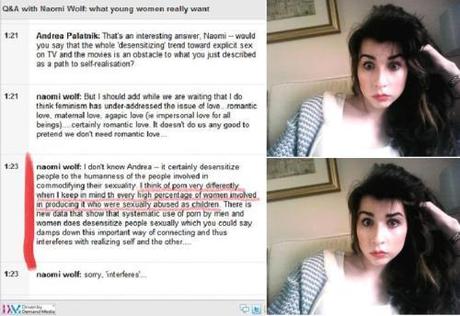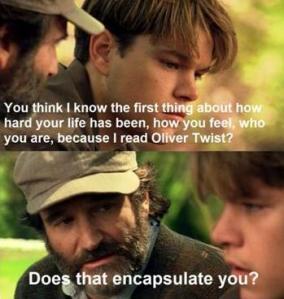Last month’s guest column by Kelly Michaels was so well-received I’ve decided to make it a regular feature on the second Monday of every month. And as soon as I made that decision I knew exactly whom I wanted to ask first: Sarah Woolley, whose writing I’ve linked twice before in TW3 columns. Sarah is a freelance writer who is one of the rare non-whores who “gets it” so completely that she is a valued ally; her essays are not only bang-on perceptive, but also sparkle with the sort of dry English wit that makes her a joy to read.
Rhoda Grant, MSP has published the responses to her consultation on the proposed criminalisation of sex workers’ clients in Scotland. The response from the Paisley Branch of Amnesty International (which supports criminalisation) is receiving a lot of attention for how it was presented and everything that is wrong with it. Jemima101‘s analysis includes a response from Amnesty to say that Paisley’s statement “doesn’t reflect Amnesty’s position. We’ve not commented on the Bill.” Jemima’s piece also lists the human rights groups that support decriminalisation. Meanwhile, Jewel examined the prejudices in Paisley’s statement, and its tendency to use second hand anecdotal evidence, including an employee of a women’s prison who spoke with:
…a young woman who had experienced prostitution of her own volition. The young woman was adamant that she was not a victim and that it had been her choice. Without wishing to patronise her in any way, her forearms were covered in so many scars it was impossible to see any unmarked flesh. To those of us who have been fortunate to have had a (fairly) stable childhood, where abuse has not damaged our understanding of bodily boundaries, her defence of “not being a victim” has a hollow ring.
It is possible to tackle the prejudices in this statement without refuting the existence of individuals with abusive backgrounds. However, it is difficult to do this because abolitionists use discussions of childhood and mental health problems to silence and dismiss sex workers.
The Paisley statement gave me déjà vu for the last time I poked my pretty head into a Q&A session at the Guardian where Naomi Wolf was discussing “What Women Want”. Personally, I want a feminist discussion that won’t hinge upon vajazzles, Barbies, advertising and other La La lands but I’m prepared to make baby steps. Step one is for wider criticism of glib statements like this:
Slow down, Wolf, slow down.
To be fair to Wolf, I too started to think of porn differently after a spurious correlation came to my attention when my favourite Tumblr – “Indifferent Cats in Amateur Porn“ - alerted me to the high percentage of women who were Crazy Cat Ladies before entering the industry. (Insert pussy joke here). Providing data (I don’t see any coming from Wolf or Paisley) to back up a claim for its own sake is one thing, but using that statistic to critique sex work as an automatically negative outcome of that abuse? I call shenanigans.
Those who investigate or make assumptions, concerning the childhoods of marginalised groups – be they pornographers, kinksters or queer folk – are renowned for already knowing what they want to hear. Namely that no woman in her “right mind” would do that, so we have to discover what made her that way. That’s why there is little call to sift through the childhoods of lawyers and deep sea fishermen. Arguing that sex work is inherently symptomatic of pain leaves those with abuse-free childhoods wondering what induced them into such a terrible career. Was it their parents’ divorce? Were they bitten by an angry stripper as a youth?
Not everyone will thrive in sex work, whether they were abused or not, but discrediting a woman’s choices with one piece of information only stigmatises abuse. I believe that survivors have a right to mature into their own sexual identity and it’s not our call to say which form it should take in the interest of psychological health. Claiming that a sex worker was “probably molested” is familiar to us under the guise of misplaced concerns and punch lines. Take, for example, these Twitter gems:

Gosh. Twitter sure is a handy way of deciding who can’t touch my food.
Presenting rape as a fundamental element to what made a porn star “that way” discourages everyone, not just the woman in the Paisley statement, from discussing the nuances of life after abuse. When survivors contemplate “coming out” they make a decision that concerns far more than “am I ready to make this step?” Comments like the above are examples of the prejudices they will be exposed to when a Wolf in sheep’s clothing refuses to see their lives through anything other than a broken lens. Abused as a child? Want a tattoo? Prepare to discuss whether or not it’s an integral part of “reclaiming your body” or a form of self-harm. And no, you’re not allowed to just think tattoos are awesome. When a woman deviates from what’s “normal” it’s comforting to dismiss her with psychopathology. Charlotte Shane at Tits and Sass responded to those who regard all sex worker past as prologue with this: ”Bottom line: Not all sex workers were molested or beaten or criminally mistreated while growing up. Some of them were, just like some doctors and some teachers and some plumbers were.” In other words, the abuser is always the problem. Not the vocation. If someone feels compelled to join an industry to which they aren’t suited, we should ensure that our society isn’t closing off other opportunities with society’s habit of using a sex worker’s resume as a weapon against their reputation. If Wolf and the Paisley Branch want to derive some significance from shaky studies that suggest more abused women sell sexual services than frozen bananas, they need to recognise the women who can reconcile consensual sex with an abusive past. Even if that consent is on camera. Not doing so is just as damaging as denying that some sex workers identify a negative link between their job and their history of abuse.
Some performers will have to stop working because their past catches up with them. Only those women can say if it was their job that was triggering bad memories or something as mundane as a perfume that blindsided them as they waited for a bus. When it comes to triggers, no one gets to choose what penetrates them. There will also always be people for whom sexual spaces, commercial or otherwise, are sanctuaries. No job application should be motivated by a therapeutic need, but it’s a bonus when a community benefits a person’s life. Although she doesn’t work in porn, xoJane’s Emily McCombs has written about enjoying taboo sex in a life after sexual trauma. Emily writes that “A lot of factors go into the creation of a fetish” and one of those for her is “almost certainly trauma”. For her, this element doesn’t make it a foregone conclusion that controversial sex in non-consensual and damaging.
 When it comes to the anonymous woman described by the Paisley Branch, the finer points regarding how she feels her experiences inform her choices is not an insight we’ll gain from talking over her. I’m going to wager that explicit imagery doesn’t, as Wolf suspects, “Desensitise people to the humanness” of sex workers. However, we do diminish a woman’s humanity when we demand, regardless of how she perceives things, that the price of her past must be her future.
When it comes to the anonymous woman described by the Paisley Branch, the finer points regarding how she feels her experiences inform her choices is not an insight we’ll gain from talking over her. I’m going to wager that explicit imagery doesn’t, as Wolf suspects, “Desensitise people to the humanness” of sex workers. However, we do diminish a woman’s humanity when we demand, regardless of how she perceives things, that the price of her past must be her future.
